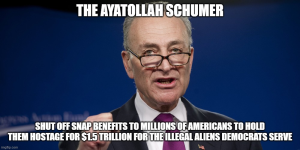Is chartiy a primary trait of liberals?
Charity is a valued trait among liberals, especially in terms of broad, inclusive giving and support for systemic aid—but they tend to donate less personally than conservatives. Liberals are more likely to support national and international causes and advocate for government-led social programs.
Here’s a breakdown of the research and ideological patterns:
 Liberal Philosophy on Charity
Liberal Philosophy on Charity
- Universalism: Liberals often emphasize global empathy and inclusive aid, supporting causes that help marginalized groups across national boundaries.
- Government as Charity Vehicle: Rather than relying solely on personal donations, liberals tend to favor government programs (e.g., SNAP, Medicaid, foreign aid) as expressions of collective generosity.
- Social Identity: Studies show liberals score higher on global social identity, meaning they feel connected to humanity at large rather than just their local or national communities.
 Charitable Giving Patterns
Charitable Giving Patterns
- COVID-19 Study (SPSP): During the pandemic, 70% of liberals donated part of a surprise bonus to charity, compared to 56% of conservatives. Liberals were more likely to give to national and international charities, while conservatives focused on local ones.
- Arthur Brooks’ Findings: In contrast, Brooks’ book Who Really Cares found that conservatives donate about 30% more to charity than liberals, even when earning less.
- Interpretation: Liberals may give less personally but support redistributive policies that channel aid through taxes and public spending.
 Summary
Summary
- Liberals are generous in scope, often supporting causes that benefit distant or marginalized populations.
- Personal giving may be lower, but their support for systemic aid reflects a broader definition of charity.
spsp.org/news/character-and-context-blog/brewer-buchan-liberal-conservative-generosity










